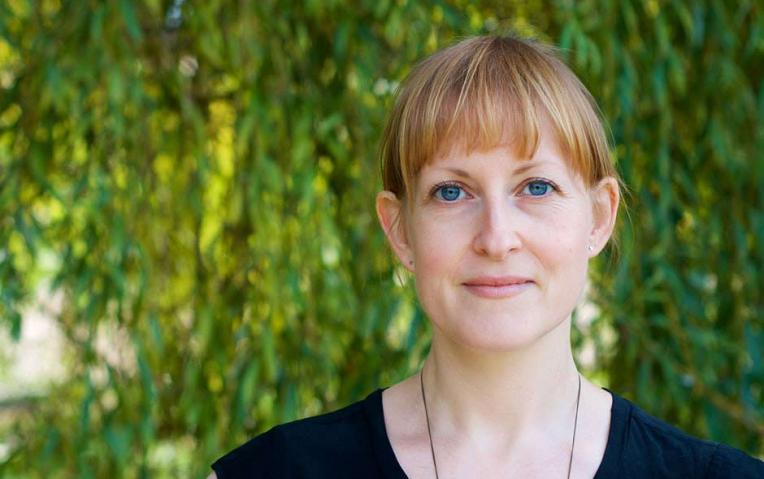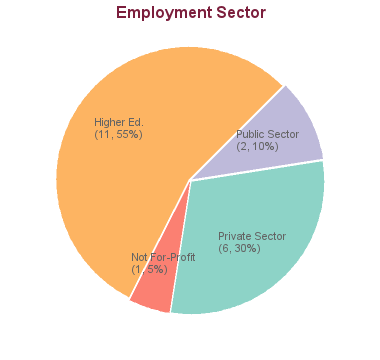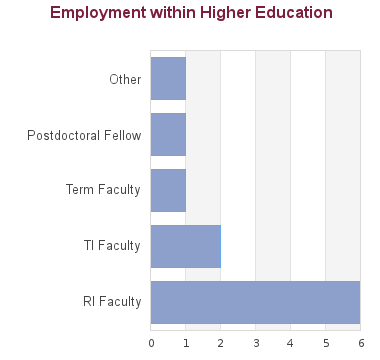
Elisabeth Ormandy
Job Title
Co-founder and Executive Director
Employer
Animals in Science Policy Institute
Applicants to Master’s and Doctoral degrees are not affected by the recently announced cap on study permits. Review more details
Applied Animal Biology offers opportunities for advanced study and research leading to a Ph.D. degree in animal physiology, behaviour, welfare, and management of livestock, companion animals, research animals, wildlife species, aquaculture, and on the human-animal relationship.
The program is enriched through collaboration with colleagues in other UBC graduate programs such as Zoology, Population and Public Health, and with agencies such as Agriculture and Agri-Food Canada, Fisheries and Oceans Canada, Canadian Wildlife Service, Dairy Farmers of Canada and other livestock agencies and the British Columbia Society for the Prevention of Cruelty to Animals (BC SPCA).
On-campus teaching and research facilities are located in the MacMillan Building. Off-campus research facilities available to students include: the UBC Dairy Education and Research Centre in Agassiz; shared research facilities at Fisheries and Oceans Canada at West Vancouver; Agriculture and Agri-Food Canada, and the BC SPCA.
UBC is uniquely equipped to offer you a rich and well-rounded graduate degree in Applied Animal Biology. After all, we have been honing our expertise for over a century: The Faculty of Agriculture (now LFS) was one of UBC’s three founding faculties back in 1915, with Animal Husbandry as one of Agriculture’s first four programs. Still today, our MSc and PhD programs benefit from state-of-the-art on-campus teaching and research facilities, as well as off-campus research facilities.
The Applied Animal Biology program is also home to the UBC Animal Welfare Program, the Dairy Education and Research Centre, and a graduate certificate in Aquaculture. The Animal Welfare Program is one of the largest and most respected programs in the world in the field of animal welfare science. Since its inception in 1997, the Program’s research has led to improvements in the lives of animals in British Columbia and around the world. The mission of the program is to improve the welfare and humane care of animals in agriculture, research, companionship and other areas through active efforts in research, education and public outreach. For additional information visit: https://awp.landfood.ubc.ca/
Graduate training at the Ph.D. level in applied animal biology requires that that the student complete a body of research leading to a dissertation. Students are expected to publish their research results in relevant leading international refereed journals. Coursework is not mandatory but if needed is decided upon in consultation with the student's supervisory committee and normally includes graduate courses in areas relevant to each student's research.
The Faculty of Graduate and Postdoctoral Studies establishes the minimum admission requirements common to all applicants, usually a minimum overall average in the B+ range (76% at UBC). The graduate program that you are applying to may have additional requirements. Please review the specific requirements for applicants with credentials from institutions in:
Each program may set higher academic minimum requirements. Please review the program website carefully to understand the program requirements. Meeting the minimum requirements does not guarantee admission as it is a competitive process.
Applicants from a university outside Canada in which English is not the primary language of instruction must provide results of an English language proficiency examination as part of their application. Tests must have been taken within the last 24 months at the time of submission of your application.
Minimum requirements for the two most common English language proficiency tests to apply to this program are listed below:
Overall score requirement: 90
Reading
22
Writing
21
Speaking
21
Listening
22
Overall score requirement: 6.5
Reading
6.0
Writing
6.0
Speaking
6.0
Listening
6.0
Some programs require additional test scores such as the Graduate Record Examination (GRE) or the Graduate Management Test (GMAT). The requirements for this program are:
The GRE is not required.
Deadline to submit online application. No changes can be made to the application after submission.
Transcript DeadlineDeadline to upload scans of official transcripts through the applicant portal in support of a submitted application. Information for accessing the applicant portal will be provided after submitting an online application for admission.
Referee DeadlineDeadline for the referees identified in the application for admission to submit references. See Letters of Reference for more information.
All applicants have to submit transcripts from all past post-secondary study. Document submission requirements depend on whether your institution of study is within Canada or outside of Canada.
A minimum of three references are required for application to graduate programs at UBC. References should be requested from individuals who are prepared to provide a report on your academic ability and qualifications.
Many programs require a statement of interest, sometimes called a "statement of intent", "description of research interests" or something similar.
Students in research-based programs usually require a faculty member to function as their thesis supervisor. Please follow the instructions provided by each program whether applicants should contact faculty members.
Permanent Residents of Canada must provide a clear photocopy of both sides of the Permanent Resident card.
All applicants must complete an online application form and pay the application fee to be considered for admission to UBC.
On-campus facilities include laboratories in the MacMillan Building. Off-campus research facilities available to students include: the UBC Dairy Education and Research Centre in Agassiz; shared research facilities at the Department of Fisheries and Oceans at West Vancouver; Agriculture and Agri-Food Canada; and the BC SPCA. Field research facilities for studies in wildlife rehabilitation are also available. The Dairy Education and Research Centre is unique in Canada and is one of the largest in the world, providing state-of-the-art research facilities for developing and adapting new technologies relevant to the dairy industry. This facility contains 300 free stalls, a 24-cow milking parlour, office, laboratory and public reception areas. It helps meet the Faculty’s expanding programs in large-animal nutrition, reproduction and behaviour/welfare. The Centre’s scientists also have strong linkages with numerous dairy organizations at the provincial and national level that has, and will continue, to facilitate on farm research. For more information about the centre, visit: dairycentre.landfood.ubc.ca/
| Fees | Canadian Citizen / Permanent Resident / Refugee / Diplomat | International |
|---|---|---|
| Application Fee | $114.00 | $168.25 |
| Tuition * | ||
| Installments per year | 3 | 3 |
| Tuition per installment | $1,838.57 | $3,230.06 |
| Tuition per year (plus annual increase, usually 2%-5%) | $5,515.71 | $9,690.18 |
| Int. Tuition Award (ITA) per year (if eligible) | $3,200.00 (-) | |
| Other Fees and Costs | ||
| Student Fees (yearly) | $1,116.60 (approx.) | |
| Costs of living | Estimate your costs of living with our interactive tool in order to start developing a financial plan for your graduate studies. | |
Applicants to UBC have access to a variety of funding options, including merit-based (i.e. based on your academic performance) and need-based (i.e. based on your financial situation) opportunities.
All full-time doctoral students within the AANB program will be provided with a funding package of at least $24,000 for each of the first four years of their PhD. The funding package may consist of any combination of internal or external awards, teaching-related work, research assistantships, and graduate academic assistantships.
All applicants are encouraged to review the awards listing to identify potential opportunities to fund their graduate education. The database lists merit-based scholarships and awards and allows for filtering by various criteria, such as domestic vs. international or degree level.
Many professors are able to provide Research Assistantships (GRA) from their research grants to support full-time graduate students studying under their supervision. The duties constitute part of the student's graduate degree requirements. A Graduate Research Assistantship is considered a form of fellowship for a period of graduate study and is therefore not covered by a collective agreement. Stipends vary widely, and are dependent on the field of study and the type of research grant from which the assistantship is being funded.
Graduate programs may have Teaching Assistantships available for registered full-time graduate students. Full teaching assistantships involve 12 hours work per week in preparation, lecturing, or laboratory instruction although many graduate programs offer partial TA appointments at less than 12 hours per week. Teaching assistantship rates are set by collective bargaining between the University and the Teaching Assistants' Union.
Academic Assistantships are employment opportunities to perform work that is relevant to the university or to an individual faculty member, but not to support the student’s graduate research and thesis. Wages are considered regular earnings and when paid monthly, include vacation pay.
Canadian and US applicants may qualify for governmental loans to finance their studies. Please review eligibility and types of loans.
All students may be able to access private sector or bank loans.
Many foreign governments provide support to their citizens in pursuing education abroad. International applicants should check the various governmental resources in their home country, such as the Department of Education, for available scholarships.
The possibility to pursue work to supplement income may depend on the demands the program has on students. It should be carefully weighed if work leads to prolonged program durations or whether work placements can be meaningfully embedded into a program.
International students enrolled as full-time students with a valid study permit can work on campus for unlimited hours and work off-campus for no more than 20 hours a week.
A good starting point to explore student jobs is the UBC Work Learn program or a Co-Op placement.
Students with taxable income in Canada may be able to claim federal or provincial tax credits.
Canadian residents with RRSP accounts may be able to use the Lifelong Learning Plan (LLP) which allows students to withdraw amounts from their registered retirement savings plan (RRSPs) to finance full-time training or education for themselves or their partner.
Please review Filing taxes in Canada on the student services website for more information.
Applicants have access to the cost estimator to develop a financial plan that takes into account various income sources and expenses.
26 students graduated between 2005 and 2013: 1 is in a non-salaried situation; for 5 we have no data (based on research conducted between Feb-May 2016). For the remaining 20 graduates:


Graduates of the Applied Animal Biology program have pursued academic positions at universities or colleges, research positions at universities and government institutions, consultant positions, or careers in animal-related fields including veterinary medicine, the animal feed manufacturing industry, wildlife rehabilitation, non-profit organizations, and others.
These statistics show data for the Doctor of Philosophy in Applied Animal Biology (PhD). Data are separated for each degree program combination. You may view data for other degree options in the respective program profile.
This program went through a name change in previous years that may have included curriculum changes. It was previously known as: Doctor of Philosophy in Animal Science until 2013. Historical data on this page may include data collected under the previous name(s) of the program.
| 2023 | 2022 | 2021 | 2020 | 2019 | |
|---|---|---|---|---|---|
| Applications | 3 | 5 | 6 | 3 | 5 |
| Offers | 3 | 3 | 5 | 2 | 5 |
| New Registrations | 3 | 3 | 5 | 2 | 3 |
| Total Enrolment | 16 | 14 | 12 | 16 | 17 |
Students in research-based programs usually require a faculty member to function as their thesis supervisor. Please follow the instructions provided by each program whether applicants should contact faculty members.
These videos contain some general advice from faculty across UBC on finding and reaching out to a supervisor. They are not program specific.
This list shows faculty members with full supervisory privileges who are affiliated with this program. It is not a comprehensive list of all potential supervisors as faculty from other programs or faculty members without full supervisory privileges can request approvals to supervise graduate students in this program.
| Year | Citation |
|---|---|
| 2023 | Dr. Sahar showed how feeding and aggressive behvaiours during the pre-calving period are associated with disease during the post-calving period in diary cattle. Using such behaviours, Dr. Sahar built predictive models that successfully identify cows at high risk of disease before they are sick. |
| 2023 | Dr. Ratuski studied approaches to environmental enrichment for mice and rats living in laboratories. She tested the effects of various enrichment strategies on rodent behaviour and emotional states. Her work demonstrates how species-appropriate changes to conventional laboratory housing can promote natural behaviour and improve rodent welfare. |
| 2022 | Dr. Brunt studied the social licence to use animals for scientific purposes and the role of institutional transparency in this process. He identified several opportunities for institutions using animals to engage in activities to increase institutional openness with the public and help renegotiate the social licence to use animals in society. |
| 2022 | Dr. Koralesky used institutional ethnography to investigate how animal sheltering policies and animal protection laws organize what happens to animals. Her research illuminates frontline work practices involved with responding to concerns about animals in distress, helping animals with behavioural problems and keeping people and animals together. |
| 2021 | Using wearable technologies, Dr. Schirmann investigated how the behaviour of dairy cows changes in response to illness. Her work has shown that cows change behaviours in response to illness and her findings are a key step to identifying automated ways of identifying unwell animals when housed in large groups. |
| 2021 | Dr. Zhang coined the Integrated Respiratory Assessment Paradigm for accurate, precise, repeatable and comprehensive respiratory phenotype characterization for individual fish. This high throughput method allows biologists to develop and integrate a metabolic model with a genomic-physiology-ecology axis, leading to a better understanding of evolution. |
| 2021 | Dr. Ede examined the potential of place aversion to assess affective pain in dairy calves. Basing the experimental approach on the animal's memory of common painful procedures such as injections and disbudding, calves were shown to display an emotional response to pain. |
| 2021 | Automated activity monitors used on dairy farms help detect periods of sexual receptivity, called estrus, in lactating cows. Dr. Madureira's research demonstrated that estrous expression detected by such monitors was associated with better fertility and reduced pregnancy loss, and can help the efficiency of reproductive management in dairy herds. |
| 2021 | Dr. Lecorps investigated the effects of some common stressful and painful procedures on dairy cattle welfare. He found that some procedures likely induce negative mood and that some personality traits (e.g. pessimism) may render calves more vulnerable to stressors. His work shows that more research is needed to improve the welfare of dairy cattle. |
| 2021 | Dr. Mills studied farmer decision-making and the role of their advisors to improve the welfare of dairy cows. The goal of this work is to help farmers better manage their businesses and improve the lives of the animals under their care. |
Applied Animal Biology offers opportunities for advanced study and research in animal physiology, behaviour, welfare, and management of livestock, aquaculture, and wildlife species.
Departments/Programs may update graduate degree program details through the Faculty & Staff portal. To update contact details for application inquiries, please use this form.

This city won’t disappoint. It has it all: sea, parks, mountains, beaches and all four seasons, including beautiful summers and mild, wet winters with snow.